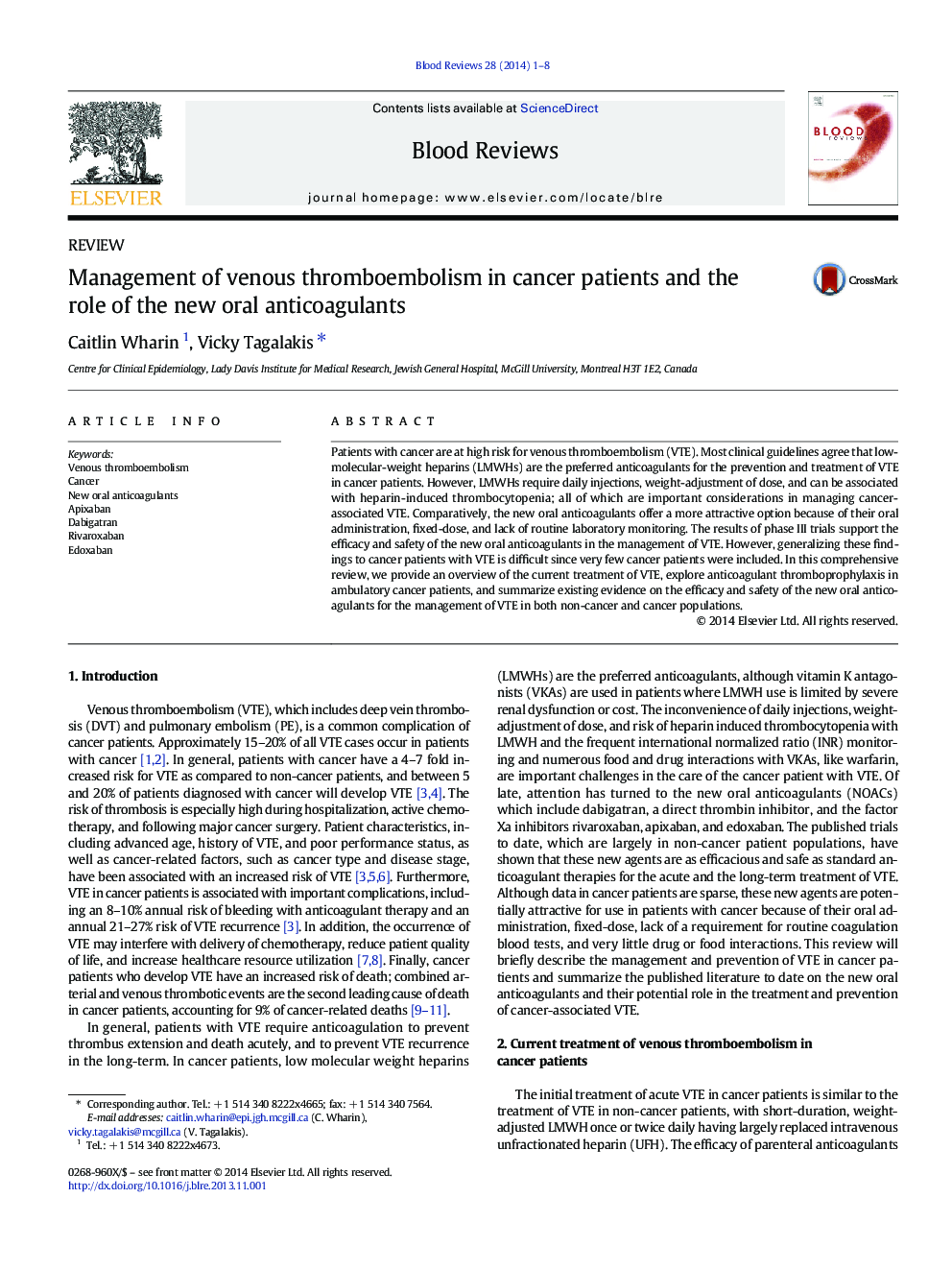| Article ID | Journal | Published Year | Pages | File Type |
|---|---|---|---|---|
| 2106166 | Blood Reviews | 2014 | 8 Pages |
Patients with cancer are at high risk for venous thromboembolism (VTE). Most clinical guidelines agree that low-molecular-weight heparins (LMWHs) are the preferred anticoagulants for the prevention and treatment of VTE in cancer patients. However, LMWHs require daily injections, weight-adjustment of dose, and can be associated with heparin-induced thrombocytopenia; all of which are important considerations in managing cancer-associated VTE. Comparatively, the new oral anticoagulants offer a more attractive option because of their oral administration, fixed-dose, and lack of routine laboratory monitoring. The results of phase III trials support the efficacy and safety of the new oral anticoagulants in the management of VTE. However, generalizing these findings to cancer patients with VTE is difficult since very few cancer patients were included. In this comprehensive review, we provide an overview of the current treatment of VTE, explore anticoagulant thromboprophylaxis in ambulatory cancer patients, and summarize existing evidence on the efficacy and safety of the new oral anticoagulants for the management of VTE in both non-cancer and cancer populations.
